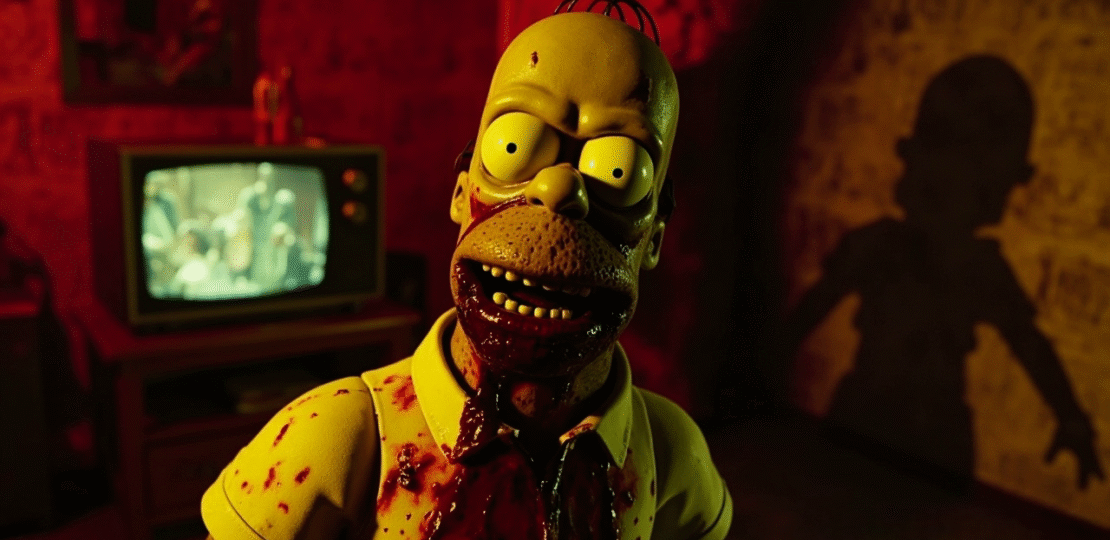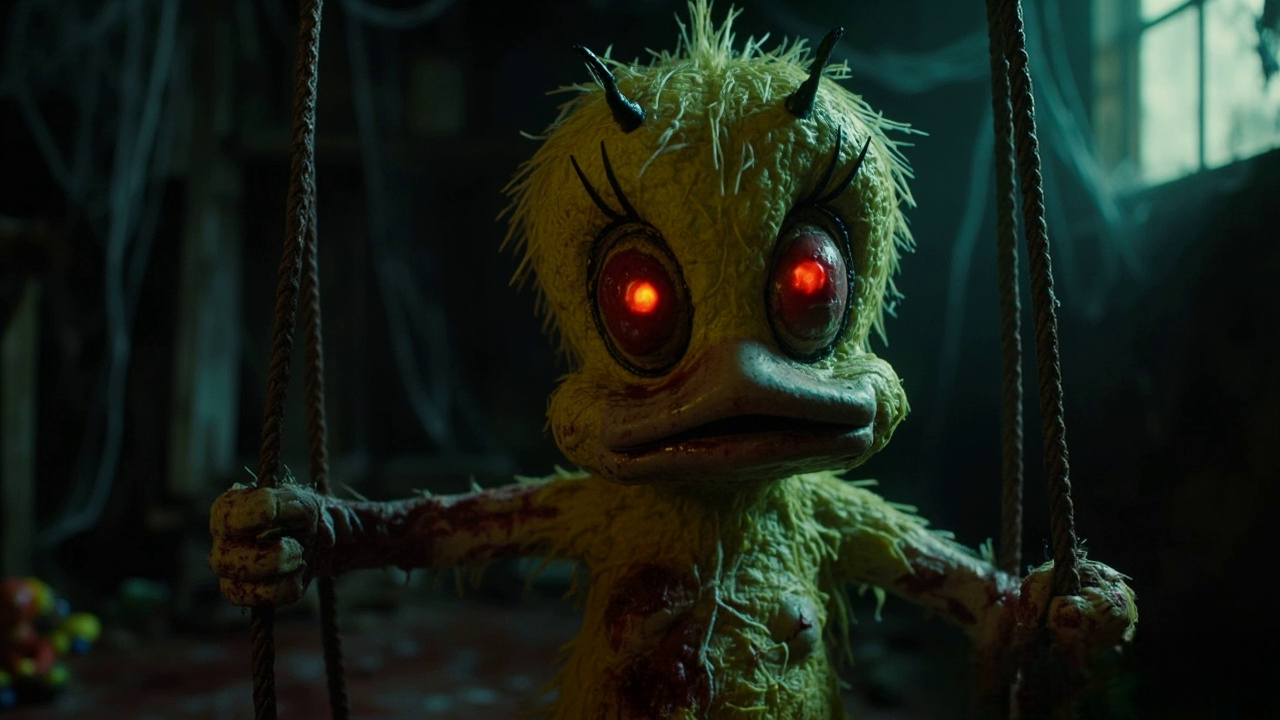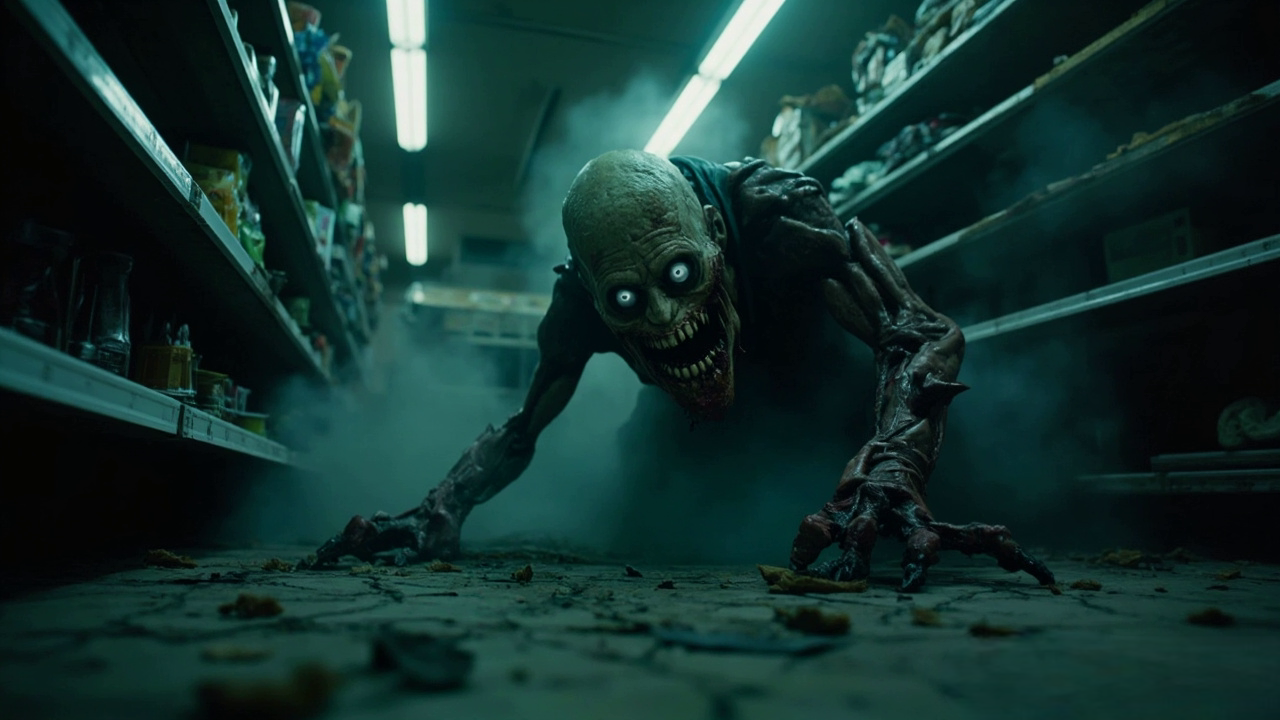
In the quiet town of Springfield, things had always been strange, but comforting. People knew each other, laughed at the local bar, and life went on in its cartoonish rhythm. But something changed—something no one wanted to talk about. They whispered about a version of Homer Simpson that didn’t laugh, didn’t eat donuts, and didn’t love.
It began with the flickering lights inside 742 Evergreen Terrace. Marge noticed first. The electricity would cut in the middle of the night, always at 3:03 AM. Then came the scratching behind the walls. It wasn’t rats. It sounded like fingernails—or teeth.
Maggie stopped giggling. Bart started drawing pictures of their dad with no eyes. Lisa stayed in her room, refusing to speak to anyone. One day, Marge found a note under her pillow in red crayon: “HE’S NOT DAD.”
It wasn’t the beer or the couch that changed Homer. It was the mirror in the basement. He had found it during one of his lazy searches for more Duff. Hidden behind old boxes and cobwebs, it stood tall and strange—wooden frame etched with symbols that didn’t look like they came from Earth. When he looked into it, his reflection blinked before he did.
From that night on, Homer became… different.
He still looked like Homer. But his skin had a strange gray hue. His eyes were wider, unblinking. His smile stretched just a bit too far. He still went to work at the plant, but Lenny and Carl noticed he didn’t speak—he stared. Mr. Burns said nothing, but was found a week later with all his fingers snapped backwards, eyes frozen in terror.
Homer began to hum. A low, rumbling hum that made the walls vibrate. The kind of sound you feel in your teeth. It followed him everywhere.
One night, Marge followed the humming down to the basement. The mirror was gone. In its place, a doorway of smoke. She saw Homer standing inside the threshold, holding Maggie upside down, whispering something in a language she couldn’t understand.
When Marge screamed, Homer turned slowly, eyes bleeding thick black fluid. “She’s lighter this way,” he said, and dropped the baby. But Maggie never hit the floor. She vanished—into the smoke.
The house twisted after that. Doors led to wrong rooms. Hallways repeated. Time bent. Marge would cook dinner, blink, and the food would rot in front of her. Bart scratched symbols into the walls and claimed they protected him. Lisa wrote equations that didn’t belong to any human science.
Outside, no one noticed. Ned Flanders waved every morning. Apu sold snacks. Moe served drinks. But their eyes were hollow, and their voices delayed—like they were pretending.
Lisa finally told Marge the truth.
“The mirror didn’t show Dad,” she whispered. “It showed what wanted to be him.”
She’d read it in a forbidden book buried in the school’s abandoned west wing. The mirror was a portal. It allowed one of the Old Ones—a being of hunger and mimicry—to take Homer’s form. It needed to feed. And not just on food. On souls. Familiarity. Trust.
That’s why it wore his skin.
One night, Marge tried to confront him. She found Homer in the living room, watching static on the TV, surrounded by moving shadows. When she approached, he turned.
“You’re not supposed to remember,” he hissed.
He rose, his body cracking like brittle paper. Limbs stretching unnaturally. His mouth opened wide—wider than should be possible—revealing rows of long, jagged teeth and a void behind them. Voices screamed from inside his throat.
Marge ran, but the house fought back. Walls melted. Floors buckled. Every door led back to the living room.
She tried one last time—threw herself into the fireplace and found herself in the basement again. The mirror had returned.
On the other side, she saw Homer. The real one. Trapped, bruised, staring back with hopeless eyes. He mouthed: “Don’t trust me.”
She reached out—and felt hands pull her back.
Now, no one talks about the Simpsons. Their house still stands, but no one goes near. At night, people swear they see flickers of yellow figures moving past windows, dancing wrong. Laughing wrong.
And every so often, a voice hums.
Low, deep, hungry.
And if you listen too closely, it sounds just like him.
“D’oh.”
RELATED POSTS
View all



